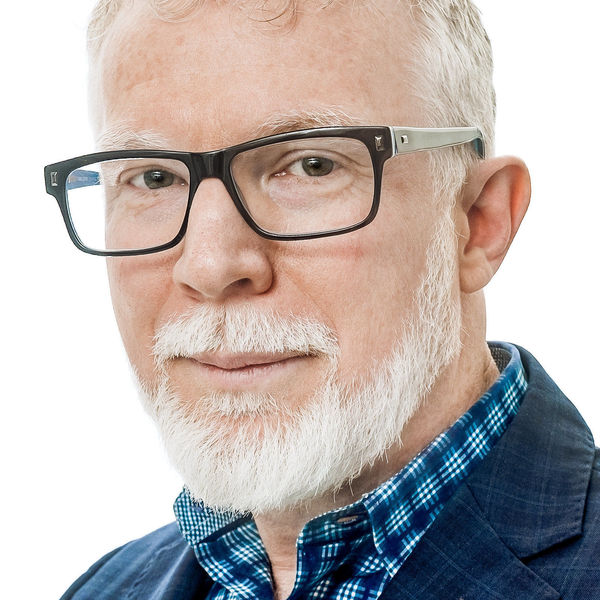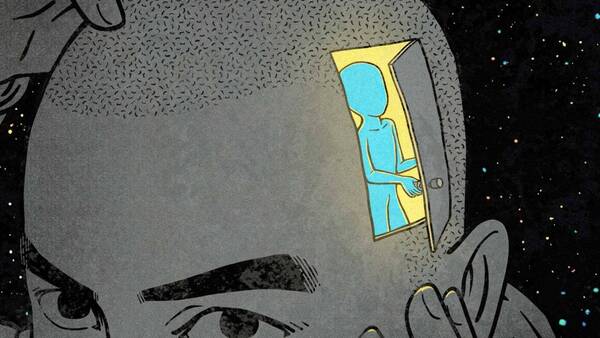Recently, my university hosted a salon on Artificial Intelligence and the Future of Knowledge Formation. The panel had two MDs that investigate the uses of AI in medicine, two English literature professors, and one computer scientist that works in AI. To a person each of the five panelists, brought up concerns about the ethics of AI. In each instance, the use of the term “ethics” was very familiar in what was meant about it.
We tend to think that ethics is something added onto technology, as if it is just another component to be added to the machine. We really want our technologies, including AI, to do good things for us, and so the “ethical” questions are always of two sorts : 1) “who” gets to design and thus take advantage of the fruits of AI?, and 2) can we make sure that AI’s fruits are distributed equally among us? Really, what our culture means when it asks the ethics questions of technology is this: who rides herd on these machines, who controls the machines? It is more of a question about the control of technology than anything else.
We truly believe that we can design moralities into our machines.[1] Yet, in this way of configuring “who” gets to design the machines and “who” gets to take advantage of its fruits, this imagined “who” is part of the modern mythology of technoscience that has resulted in the technologies that we think we can ride herd over. What is this human that it can control the technology? What could it possibly mean that morality is designed into AI machines to make them ethical?
The more important question is this: What is the anthropology that informs this idea that the human can control its creations? Or more properly, what is the mythology that would have the human create AI in its own ethical image? Technology is so difficult for us to engage because it is so close to us, for in creating it, it recursively creates us, and sets out for us what it is possible for us to imagine, including what to imagine the ethics of technology is.
What Is AI, That We Are Mindful of It?: The Western Technological Patrimony
Plato set us on the epistemological trajectory of our thinking about technology in the West. His distinction between episteme and techne; episteme is true knowledge and techne is mere artifice—the artifice of the sophists. Reason must inform technology lest it become mere artifice taken up by sophistry. So, the idea plays itself out like this: a kind of reason that has not been infected by the sophist’s techne to ought control the tools of reason’s creation.[2]
Another arm of the West’s thinking about technology can be traced to Aristotle, who claimed that tools have a different kind of being than natural beings. Natural beings have their causes within themselves and tools have their causes outside of their being. Thus, human actors are different from artificial beings at the most fundamental level. The line goes from the human actor using episteme to produce techne/artifice. The tools are under our control; let us use reason to produce and use them.
This vision of the world finds itself at the center of Francis Bacon’s thinking. The human through the new work of science can look at nature, learn from it all that it needs to know, and can deploy that carefully considered knowledge to build the Utopian city, Bensalem. Descartes takes it up a notch: the human actor can become the master and possessor of nature through its on artifice and the creation of devices. Thus, the vision of political and ethical control runs deep in our ways of thinking. The ethics of technology is about controlling, and it can be better controlled if we broaden “who” gets control over it. While the emphasis seems to be on the “who,” the control is the important part. “We” will control “it.” And then if we can just design it from the very beginning making sure that the good things outweigh the bad things and that the good things are distributed to everyone and the bad things are not unduly burdening the least of these, then all will be well.
But then who are we, that we can be mindful of technology? What is the human, that we can be mindful of AI?
The Chicken or the Egg
However, on closer inspection, the Western story about technology seems to be the bad kind of myth. It is a shared lie that permits us to delude ourselves. The human is less creator, or master and possessor of his tools, then the tools are constitutive of human identity. Reality is much more complex than these simplistic binaries of episteme and techne, or natural and artificial beings, or the master and her tools.
Spiders—a non-rational animal by our standards—produce their tools, their webs from their own bodies. In fact, spider webs were tools of perception before they were tools of action. The web permitted the spider to extend its already superb vibratory sense. In fact, its exquisite vibratory sense capacities co-evolved with its capacity to produce its natural tool. Only later in its evolutionary development does the web become a trap to capture prey. Birds will use materials found in their locales to design their homes; other species of bird will use rocks to crack open seeds. Tool use is pretty common in the nature, and yet it is disconnected from frontal lobe control.
Moreover, early prehuman hominids are known to have used tools well before the frontal lobe development in the non-humans that would become modern homo sapiens. In fact, the development of the opposable thumb seems to have arrived about the same time as hominid tool use.[3] It is entirely possible that the evolutionary development of human reason became possible because of tool use, and not the other way around as it is imagined by Western philosophy. The smaller brain hominid could grasp a stick to beat back its prey, giving it evolutionary advantage over its prey, permitting frontal lobe development.
In fact, other evolutionary developments also contributed to the emergence of modern humans. What will become the voice box moved down lower in the throat, permitting the independent usage of the trachea and the esophagus.[4] With its repositioning in relation to the esophagus, the voice box was freed to become a tool for speech, and thus oral symbolic communication—language—became a possibility. You might say that human language is like the spider’s web. With language our attention is drawn to certain aspects of the world, and words permit us to do things in the world around us. Language is, as Heidegger notes, the house of being, a home in which the human can dwell.[5]
Thus, the hard and fast distinction between nature and technique seems suspect. Words become our tools of mediation between ourselves and the world around us and the world. Like tools that mediate between my intentions and the world I hope to build, words permit us to imagine worlds not yet built, or not yet possible. In fact words shape brains, children need language to progress through stages of cognitive development. So, not only does language permit me to imagine interventions into the world, words themselves make cognitive development possible. Just as the use of a hammer drives the nail into the wood, the use of the hammer reverberates back to its user, making him stronger and more precise with each stroke of the hammer.
Evolution by Means Other Than Life
This question of words and their relationship to human powers and human identity is the animating question of the Phaedrus. There is a profound truth lurking beneath Socrates’s worries about the technology of writing. At the core of Socrates’s engagement with Phaedrus is the problem that writing—a novel technology—presents to the younger generation Athenian. In learning speech and rhetoric, the student is formed to become a responsible member of the polis.
But if one does not memorize, then memory will become weak. Socrates worries are deeper though. Not only will writing result in the loss of memory now that we don’t have to memorize anything, the tool of writing will also change the modes of rational discourse. Speech-making creates a different kind of memory and a different kind of rationality than writing, and Socrates wonders just what sort of being the Athenian will become. Will writing usher in irrationality? Socrates fears were perhaps overstated, but let’s run with it for a bit.
Walter Ong’s book Orality and Literacy plays with the idea that the human animal not only produces techniques of communication like speaking or writing, but that the activity of speaking and writing produces two very different ways of imagining the world.[6]
For oral cultures, to which we do not have direct access, the poetic techniques of rhyme, meter, and repetition made it possible to create memory aids that can easily be passed from one generation to another. Memory, through recitation, is embedded in the technics epic poems. Memory devices like this make it possible for cultures to be passed from generation to generation. Even the material culture of architecture grows up around the spoken word. Amphitheaters are the centers of culture making and the forum is the center of public engagement; these are places where the technics of speech can be broadcast more easily to the masses. But the technics of speech also shaped not only what, but how the speaker could think. Reason and time were imagined to be a bit more repetitive, not a repetition of the same, but a repetition with a difference. Time is imagined as a spiral, histories are imagined as seasons that will return anew.
With writing a different sort of thinking was made possible, Ong argues. Writing makes possible a different kind of memory aid. One need not do the work of memorizing, but one could be freed to do other things. Prose takes on an ever-more important role. The material culture that grew up around writing was the monastery with its scriptorium. Reason becomes more linear, and history—for the most part—ceases to be cyclical or spiraling. The time-line permits a before and after thinking, a sense of that everything is new, even if it is caused by the past.
The printing press accelerated literary culture. The type-set repeats without difference the words on the page. The word printed on the page yesterday will be the word printed on the page tomorrow. Identical repetition is possible. We can read the truth right there on the surface of the page. With the printing press, the material culture of the monastic scriptoria is no longer necessary. The culture of democratized learning is possible. Everything in the culture must change, including religion, which must be reformed. Where in the previous culture, there were four levels of interpretation of literature—anagogical, allegorical, tropological, and literal—now with the meaning is right there on the surface, the letters on the page—the literal meaning—seemed easily accessible and the most important part of a text, especially the Bible. Even nature, which had also been interpreted according to the four levels, could now be read empirically, on the surface of reality.[7]
Ong’s point is that, just as my use of a hammer makes me stronger, my use of the cultural technics shapes not only what we think, but how we think. It shapes how we imagine and take up with the world around us. Bernard Stiegler puts it differently. Humans are their technics. We are born into the technics of our age and it shapes what we are and what it is possible for us to become, including what “we” think is ethics. Human life evolves by means other than life. The human animal becomes the animal it is human through its technics.[8] The human is that animal that by its nature is cultured, which is to say the human is a product of its technics.
Off-Loading Moral and Intellectual Habits
If the technics and tools that we create not only do the work we imagine for it to do, it also shapes our desires and our habits. Technology has been used to off-load the hard work humans had to do, but we eventually become unable to do the off-loaded work. It is a common trope today to hear that millennials don’t have good geographical skills because they have become so dependent upon electronic navigation. The same is true for moral and intellectual habits.
To become a generous person, I must engage in generous activities. If I am in the habit of writing a check every month, and taking it to the homeless shelter, I have to create habits to remind myself to write the check. Then I have to remember to drive a different way to work on the last day of every month to drop the check at the homeless shelter. And then I have to walk into the homeless shelter, and in doing so, I encounter the poor face-to-face. I see that they are just people trying to make it in life.
But modern technology makes it possible that I can set up autopay through my bank allowing me to donate monthly without the creation of habit. I no longer have to remind myself to write the check on the last day of the month. I no longer have the drive by the shelter, or go in to drop the check. I no longer get to encounter the people taking advantage of the shelter. In fact, it changes the way I think of these people. They are not Joe and Betty, they become “the homeless”. While I am giving a check to the homeless shelter, and they are still getting the money, am I truly becoming generous?
Likewise with reasoning: I learned to think when I learned to write. In my attempts to persuade my reader of my thesis, I began to see the rational structure needed to move from my premises to my conclusions. I put the words and the reasoning on the page, and they come back to recursively shape ability to think rationally. Writing habituates me into thinking rationally. I can see the argument, and it recursively shapes me. In writing, I gain an intellectual habit.
In the academy, we have all been focused on AI and its ability to write our students papers. We have mostly worried about how to assess the students now that AI is doing the writing. To my mind, assessment is the least of problems. What will be lost as students increasingly do not write their own papers, are the intellectual habits of reasoning. We may be offloading all of the high stakes and difficult problems to AI, and thus lose our on ability to think critically. We evolve through the mediations of our technology. What is the human? Will AI be mindful of it?
Toward a Spiritual Anthropology
I do not mean to sound alarmist. Humans will not cease to be rational because of AI. But human forms of rationality and how we imagine ourselves will change. But the question of AI should force a deeper questioning.
Certainly, the “who” question is an important ethical question; but there is a deeper problem than who gets to control the technology. Modern technics has already created a myth about the human, the “who.” That mythology is that the human has become the master and possessor of nature through its tool-use, and that it can be the master and possessor of its tools. This myth imagines the human to have godlike qualities and to stand in free relation with respect to its technologies.
Yet, the human is already partly a product of its technologies. That means the ethics of technology has to go deeper than the control question, which posits the “who” as a godlike creature that stands apart from and can control AI. It is not just about the control of technology. It is a question about the human. So, the real ethics question is the anthropological question of who we are, and whether there is any depth to our self-conception. But that requires us to realize that the human animal is the animal that by its nature is cultured, which is to say: the human by nature is technical. And it seems that our mythologies of technology including AI occlude us from asking if there is any spiritual depth left to human identity.
[1] Peter Paul Verbeek, Moralizing Technology: Understanding and Designing the Morality of Things, University of Chicago Press, 2011.
[2] Bernard Stiegler, Technics and Time, vol 1: The Fault of Epimethius, Stanford, CA: Stanford University Press, 1998; p. 1.
[3] Mary W. Marzke, “Tool making, hand morphology, and fossil hominins” Philosophical Transactions of the Royal Society of London Biological Science, 2013; 368(1630). DOI: 10.1098/rstb.2012.0414
[4] Lieberman, P. The Biology and Evolution of Language, Cambridge, MA: Harvard University Press, 1984.
[5] Martin Heidegger, “Letter on Humanism” in Basic Writings, edited by David Farrell Krell. San Francisco, Harper San Franciso, 1993, p. 217.
[6] Walter Ong, Orality and Literacy, New York: Routledge, 2012.
[7] See also Catherine Pickstock, After Writing: The Liturgical Consummation of Philosophy. Oxford: Blackwell, 1999.
[8] Stiegler, op. cit. 175-177.


